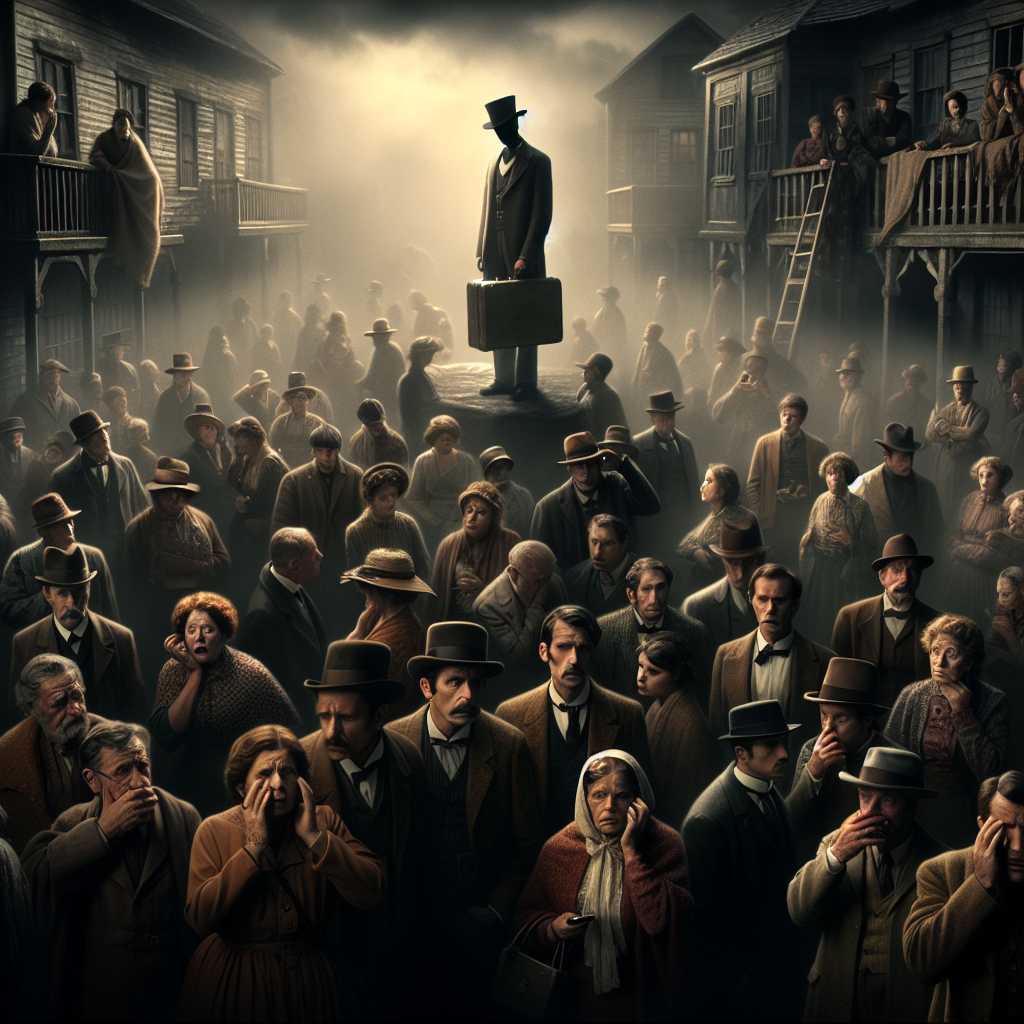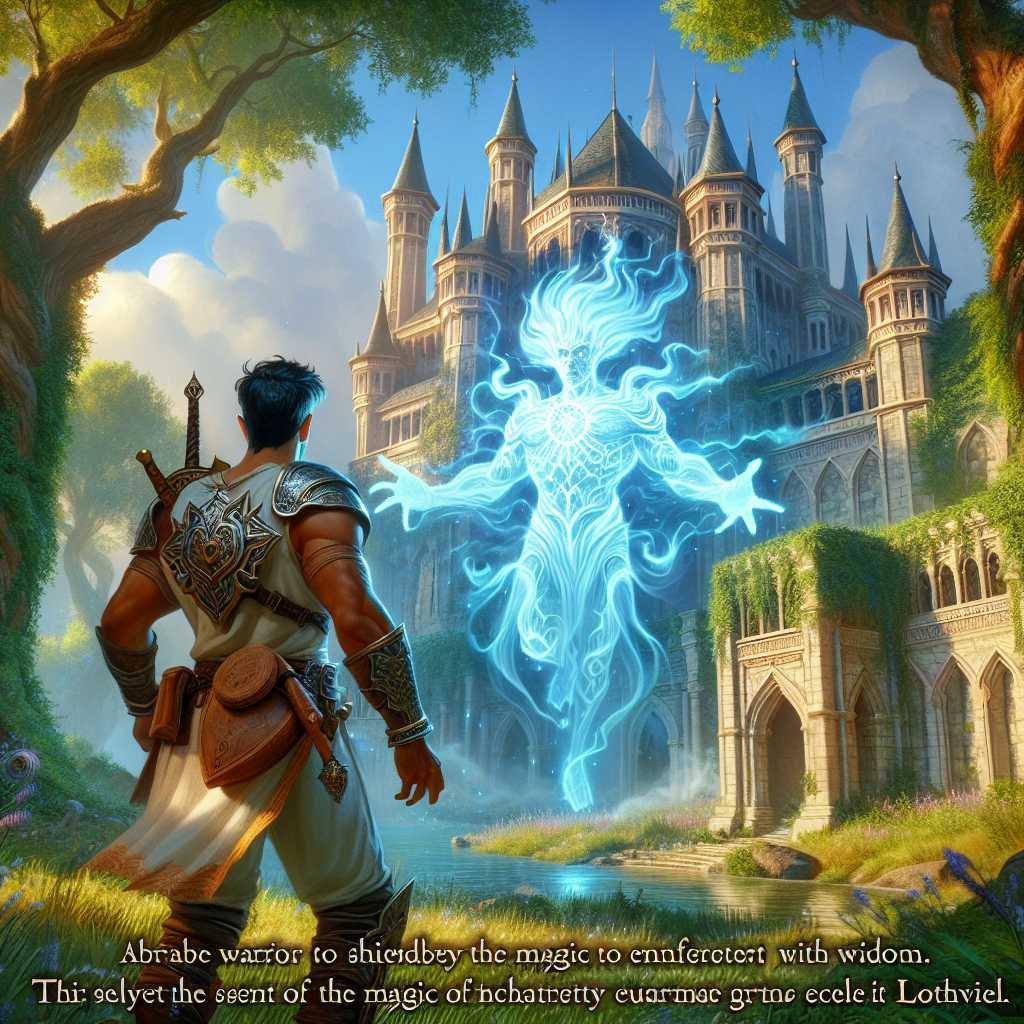
On the edge of an ancient and whispering wood, there lay the sleepy town of Maple Hollow, a place where time seemed to tread with gentle steps. Yet one chill autumn night, an incident unfurled that shook the stillness from its slumber, sending ripples of disquiet through the heart of the community. It was the night that the venerable Lord Ashford was found, lifeless and cold, in his grand yet isolating manor, the night when darkness took a far more sinister shape.
The discovery was made by a Mrs. Eliza Norris, the housekeeper, who at the break of dawn, her face pale as the fading stars, stumbled into the local constable's office, stuttering in horror, "Lord Ashford, he's... he's dead!" Constable Riggs, a rotund man known for his unwavering dedication and mustache as thick as thicket, summoned his wits and men, then hastened to the scene of unrest.
The grand house stood as a silhouetted monolith against the awakening sky, its windows dark and clandestine. Inside, the evidence of a struggle was clear; a once-sturdy chair lay shattered, papers fluttered like distressed doves upon the floor, their secrets spilled and trodden on. Lord Ashford lay at an angle most unnatural, his eyes wide with the shadow of final, dreadful surprise. The constable, his experience speaking through clenched jaw, declared, "This was no mere misfortune. This was murder."
Days passed, the town caught in a web of whispers and suspicions. Constable Riggs, whose mind was as sharp as the icicles adorning the eaves, conducted his inquiries with quiet, unerring determination. Even as rumors swirled like autumn leaves in the wind, Riggs scrutinized each person of interest, from the weeping housekeeper to the distant relations who eyed the Ashford estate with poorly veiled greed. Each had motive, each had the chance, yet the truth evaded grasping hands like smoke through fingers.
Then came the evening when Riggs visited the tavern to wet his parched throat, and therein he found an outsider, a traveling salesman by the name of Henry Tills, whose tales of wares and wanderings were entertaining the locals. Riggs, observing with a practiced eye, noted the too-keen glint in Tills's gaze, the way his lips twisted when the tale of Lord Ashford's demise was recounted. Something within the constable twitched, an instinct honed by years of unraveling human tangles.
Under the guise of gentle banter, Riggs nudged the visitor. "A sad affair, the passing of Lord Ashford, isn't it? Rumor has it he was quite the collector. They say one of his pieces was worth enough to set a man for life." Tills's eyes flared, a certain avarice breaking through the veneer of friendly conversation. "Indeed," Tills crooned, "such a terrible loss of life—and potential fortune."
Riggs allowed a murmur of agreement before excusing himself, his mind afire with suspicions. For in the debris of Lord Ashford's study, among the scattered documents, he had found a receipt for a rare artefact, its arrival timed precariously close to that cursed night. A nagging thought began to weave its way through the constable's understanding, that Tills was no mere merchant passing through.
With dawn came the diligence of discovery. The constable sent word to neighboring towns, inquiries about Tills’ past dealings. Back came tales as dark as the darkest ale, of theft, of deceit, of a shadow that flitted from place to place, escaping the grasp of retribution time and again. "But not this time," Riggs muttered to his reflection in the murky glass of his office window. "Not in my town."
Acting on his growing conviction, the constable and his men paid an unexpected visit to Tills' quarters at the local inn. Concealed beneath the clever guise of clutter, they found Lord Ashford's missing artefact, its surface winking mockingly in the lamplight, as if privy to Tills’s crimes. When confronted, the traveler’s façade crumbled like ill-baked bread, revealing the crooked spine of his treachery.
It was amidst the rustling stillness of the town’s square, as the trees bore witness, that Henry Tills, his countenance now that of a hunted animal, confessed. He spoke of how he had arranged with Lord Ashford to evaluate an artefact for potential sale. It was an innocent ploy to gain entrance, to assess the wealth within reach. It was greed that whispered in his ear, urged him to return cloaked in night’s embrace, to take what he believed was his opportunity.
The artefact was indeed worth a small fortune, one that could grant liberty from a salesman's weary road. But Lord Ashford, having the instincts of a man well-acquainted with the covetous nature of the human heart, caught Tills in the act. Words grew into confrontation, confrontation into violence. With a push of panicked hands, the Lord was felled, his life extinguished as the candle upon his desk.
Tills stood at the gallows, the breeze tugging at the edges of his crimes, now laid bare for all to see. As the noose made its final, grim acquaintance, the constable felt not satisfaction, but the heavy toll of justice. Maple Hollow returned to its quietude, the furor of scandal folded away like an unwelcome guest, but Constable Riggs mused how easily shadows can lurk in the heart of man, and how close evil can reside, quietly waiting, just beyond the hearth’s warm glow.










